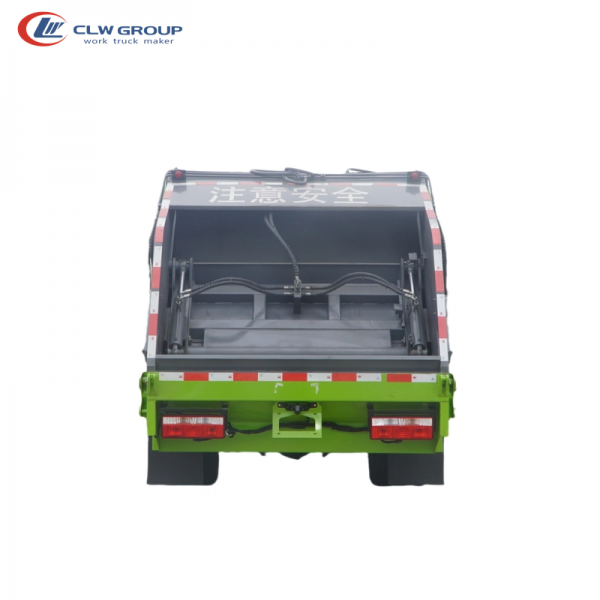Maximizing Efficiency and Performance A Comprehensive Guide to Work Truck Trailer Maintenance
Introduction

Work truck trailers are essential assets for businesses that rely on transportation for their daily operations. Whether used for hauling materials, equipment, or products, these trailers play a crucial role in ensuring the smooth flow of goods and services. However, like any other vehicle, work truck trailers require regular maintenance to operate efficiently and safely.
In this comprehensive guide, we will delve into the importance of work truck trailer maintenance and provide detailed insights into the best practices to keep your trailers in optimal condition. From routine checks to preventive measures, we will cover everything you need to know to maximize the efficiency and performance of your work truck trailers.
Chapter 1: Understanding the Importance of Work Truck Trailer Maintenance
Proper maintenance of work truck trailers is crucial for several reasons. Firstly, well-maintained trailers are safer to operate, reducing the risk of accidents and injuries. Regular inspections and maintenance checks can help identify potential issues before they escalate into serious problems that could compromise the safety of the driver, cargo, and other road users.
Secondly, maintenance helps prolong the lifespan of work truck trailers. By addressing wear and tear promptly and conducting regular servicing, you can extend the longevity of your trailers, saving on costly repairs or replacements in the long run.
Furthermore, maintaining work truck trailers ensures optimal performance and efficiency. A well-tuned trailer operates more smoothly, consumes less fuel, and delivers better overall performance, translating into cost savings for the business.
Chapter 2: Essential Maintenance Tasks for Work Truck Trailers
1. Regular Inspections: Conduct thorough visual inspections of the trailer to check for signs of damage, wear, or corrosion. Pay close attention to the tires, brakes, lights, suspension, and coupling mechanisms.
2. Tire Maintenance: Check tire pressure regularly and inspect for signs of wear, cuts, or punctures. Rotate tires as recommended by the manufacturer to ensure even wear and prolong tire life.
3. Brake System Inspection: Inspect the brake system for signs of wear, leaks, or malfunctions. Check brake pads, drums, and hydraulic systems regularly and replace components as needed.
4. Lighting and Electrical Systems: Test all lights, including brake lights, turn signals, and markers, to ensure they are functioning correctly. Inspect wiring and connectors for damage and corrosion.
5. Suspension Maintenance: Check the suspension system for signs of damage, loose components, or worn-out bushings. Lubricate moving parts as needed and replace worn components to maintain optimal performance.
6. Coupling Mechanism: Inspect the coupling mechanism to ensure it is secure and in good working condition. Check for Reviews of 2023 work truck models of wear or damage and lubricate moving parts as recommended by the manufacturer.
Chapter 3: Preventive Maintenance Practices for Work Truck Trailers
1. Implement a Maintenance Schedule: Develop a regular maintenance schedule based on the manufacturer's recommendations and the trailer's usage. Include tasks such as oil changes, filter replacements, and component inspections in the schedule.
2. Keep Detailed Maintenance Records: Maintain detailed records of all maintenance activities, including inspections, repairs, and replacements. This documentation can help track the trailer's maintenance history and identify any recurring issues.
3. Conduct Pre-Trip Inspections: Before each trip, conduct a thorough pre-trip inspection of the trailer to check for any visible issues or abnormalities. Address any concerns before hitting the road to prevent breakdowns or accidents.
4. Address Issues Promptly: If you notice any signs of damage, wear, or malfunction during inspections, address them promptly. Ignoring minor issues can lead to more significant problems down the line, resulting in costly repairs and downtime.
5. Invest in Quality Parts and Components: When replacing parts or components, opt for high-quality, OEM (Original Equipment Manufacturer) parts. These parts are designed to meet the specific requirements of your trailer and ensure optimal performance and durability.
Chapter 4: Tips for Maximizing Work Truck Trailer Performance
1. Proper Loading and Weight Distribution: Ensure that cargo is loaded evenly and secured properly to prevent shifting during transit. Overloading the trailer can lead to excessive wear on tires, brakes, and suspension components.
2. Drive Responsibly: Encourage drivers to operate work truck trailers responsibly by avoiding sudden stops, sharp turns, and excessive speeds. Smooth driving habits can help reduce wear and tear on the trailer and improve fuel efficiency.
3. Cleanliness and Rust Prevention: Keep the trailer clean and free of debris to prevent corrosion and rust formation. Regular washing and waxing can help protect the trailer's exterior and prolong its lifespan.
4. Monitor Performance Metrics: Keep track of fuel consumption, tire wear, and other performance metrics to identify any anomalies or inefficiencies. Use this data to make adjustments and optimize the trailer's performance.
Conclusion
Proper maintenance is essential for maximizing the efficiency, performance, and safety of work truck trailers. By implementing a comprehensive maintenance routine that includes regular inspections, preventive measures, and quality repairs, businesses can ensure that their trailers operate smoothly and reliably.
Remember, investing time and resources in maintenance today can save you from costly repairs and downtime in the future. By following the guidelines outlined in this guide, you can keep your work truck trailers in top condition and enjoy years of reliable service.